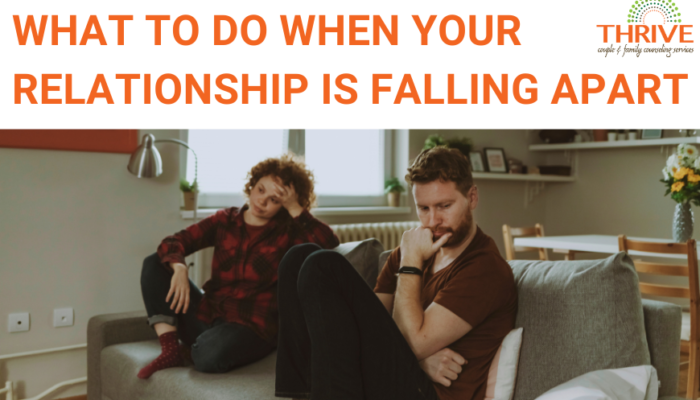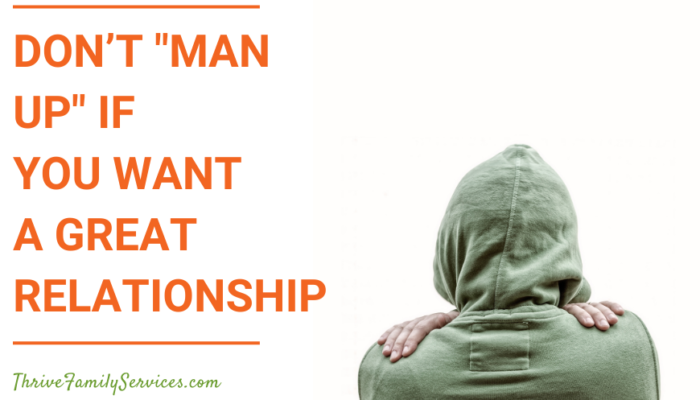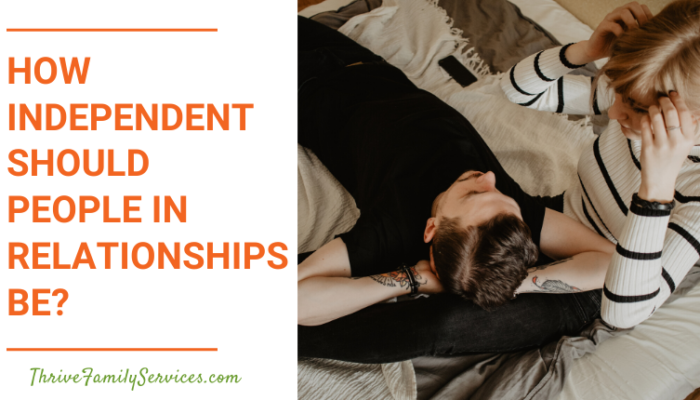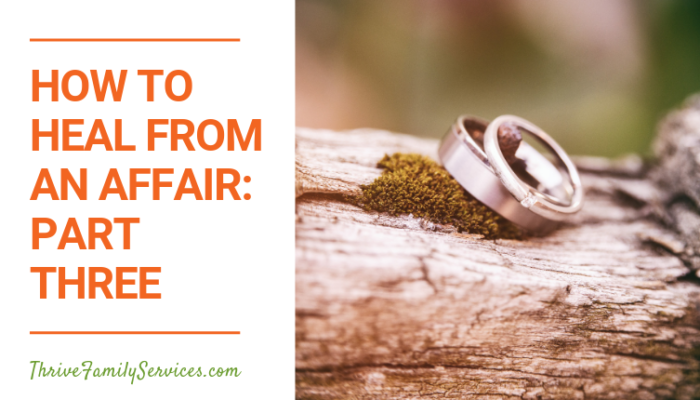Do you ever feel like your relationship is falling apart?
Here’s the thing about relationships sometimes; they’re hard. Even when things are going great and you’re happy, things can be tough for lots of reasons: family, work, money, kids, etc. When conflict and disconnection increase, most of us try our best to try to work through the challenges. If you are like so many people, it’s sometimes really hard to get unstuck from those negative interactions. It’s like a spinning ride or a roller coaster you can’t get off of, and it keeps speeding up. In Emotionally Focused Therapy, we call that the negative cycle.
Every relationship has a negative cycle. The idea that we can all get along perfectly with our partners and never step on their toes or argue is a fantasy, not a reality.
Disagreements and tension can actually lead to a lot of good things – increased communication, understanding, shared empathy, and emotional intimacy, to name a few. However, in the moment when you aren’t getting along with your partner, you probably end up feeling pretty discouraged.
When was the last time you felt connected to your partner?
In the early days of relationships, connection comes more easily. The energy of a new relationship can make everything feel more intense, and it’s easier to maintain a connection that hasn’t become strained yet. You also don’t have the memories of the difficult moments when either of you reacted in a way you didn’t love, or you felt let down. New relationship energy doesn’t last a lifetime, though.
When the honeymoon period of a relationship fades, it can be tough to come to terms with the fact that you’re not as close with your partner as you once were. You might feel that you don’t recognize your partner or that your relationship is falling apart. It’s normal for fears to start to bubble up inside as you begin to experience conflict.
Do you ever find yourself saying things like this about your relationship?
- “We always argue.”
- “I feel like we can’t communicate with each other.”
- “I can feel us growing apart but I don’t know how to stop it.”
- “I’m so tired. This isn’t working.”
- “Are we meant to be together?”
Our Denver Couples Counselors hear comments like this all the time. Being in relationships with other people is tricky at the best of times, and when things start to go downhill, it can make everything else in your life feel out of control.
It’s instinctive for us to go into stress mode when our significant relationships are in distress. You might feel desperate to end the feeling of disconnection between you and your partner. You might be frustrated with the way things are going. Or you might even feel hopeless, like nothing can ever bridge the divide between the two of you.
In many forms of therapy, communication skills are taught as a way to bring partners closer together. However, in the heat of the moment it can be hard to recall and effectively use those skills. When you’re upset, it’s tricky to take a moment to slow down and remember what you’ve learned about communicating.
What’s more, learning communication skills doesn’t do anything to solve the deeper cause of the communication problem. The issues you have communicating with your partner stem from the underlying negative cycle in your relationship that is fueled by fears and longings we all have.
What is a negative cycle?
Do you ever have the same fight over and over with your partner? That’s a negative cycle. Negative cycles are any repeated pattern of interaction that leaves you and your partner in a bad place emotionally and relationally.
You start the same conversation, things get heated, and each of you falls into your typical response pattern.
One of you may pursue and one may withdraw, which only makes things worse. You may both avoid the disagreement altogether. Or maybe you fall into a pattern where you each try to pin blame on the other. Either way, when the negative cycle is online, the conversation goes nowhere. It’s you vs. your partner.
Repairing the disconnection caused by the negative cycle is a crucial step. Emotionally Focused Therapy can teach you how to spot the pattern you’re in before it takes over and makes you feel like your relationship is falling apart.
When you feel more closely connected to your partner, you’ll feel more capable of heading things off before they become overly distressing.
How does EFT Work and how can it help my relationship when it’s falling apart?
Emotionally Focused Therapy is a therapy modality that we use in our Centennial Counseling office, and we see how effective it is every single day. In fact, research shows that 70-75% of couples working with an EFT therapist go from distress to recovery and stay there. This is because Emotionally Focused Therapy doesn’t teach you communication skills as a band-aid to your problems. In EFT, we go deeper and teach you how to understand and repair your negative cycle as a couple.
When you work with an Emotionally Focused Therapist, you’ll learn how to spot the negative cycle before it gets out of control or you feel like your relationship is falling apart. Instead of feeling like everything is you versus your partner, you will start to see it as you and your partner versus the problem.
Instead of letting miscommunication, hurt feelings, and resentment build up, you’ll be able to externalize and make your common enemy the negative pattern. You’ll get practice at talking about things as they come up in a way that is productive and leaves you feeling like you’re on the same team.
Are you feeling like your relationship is falling apart? Here are some ways to cope:
Consider how you feel and what you want
When you sense that your relationship is falling apart, you may feel the urge to focus on what your partner is thinking or doing. While it is a necessary step to communicate with them, it’s also important to turn the spotlight back onto yourself and how you’re feeling.
What is this rough patch doing to you emotionally? Do you feel disappointed, hurt, scared, panicked, frustrated, heartbroken, betrayed, numb, or tired? It’s really tricky to communicate if you don’t know what you want to say when it’s your turn to talk.
When you’ve considered your feelings, think about what it is that you want to come out of this situation. Are you looking to increase intimacy, gain closeness, or repair the distrust? Are you looking to end the relationship? Are you uncertain about what you want for your relationship?
Take some time to figure out what you want before going down the rabbit hole of what your partner wants. If you’re not sure what you want out of all of this, it will be harder to move forward.
Prioritize communication
Set aside time regularly to have honest conversations. A relationship isn’t made up of just one person, so it will take more than just one person to fix the issue. If you’re both interested in improving things, start by opening up the lines of communication again. Serious relationship issues don’t spring up overnight, and they won’t go away with one or two deep chats.
Make a commitment to one another to be truthful, respectful, and to let each other speak their piece. Honesty is important here. Continuing to hold back what you’re thinking and feeling won’t help to address the problems in your relationship. It’s time to be honest with yourself and your partner and for them to do the same.
Set any other boundaries you need to – no yelling, a time limit, whatever makes you both feel more comfortable. This is best done when you’re not in an argument, because it can be hard to slow down and move forward calmly and consciously. If you find things getting heated in the moment, it’s perfectly fine to take a break. If you do take a break, it helps tremendously to set a time to come back together so no one needs to worry if the break will turn into a permanent stand-off.
Listen to understand
There’s a popular saying that says “Seek first to understand then to be understood.” This can be a helpful reminder when you’re having trouble connecting with your partner. Instead of trying to get your own point across at the expense of your partner’s feelings, focus on what they’re trying to say and how you can make them feel understood.
It might be helpful to remember your partner’s attachment style or reach to them using their Love Language® to make them feel cared for or to understand where their reactions are coming from. Reassure them that you want to hear what they have to say.
Spend less time thinking about what you’re going to say in response and spend more time listening to what they say verbally and nonverbally. It also can help to repeat back what they’re saying so you know you’ve heard it right. You can even phrase it just like that – “What I’m hearing is [what you heard]. Is that right?”
Understand your negative cycle
Learning about the intricacies of the negative cycle in your relationship can bring you a deeper understanding of your relationship, your partner, and yourself. It’s vulnerable to admit what’s under the surface. You’ll learn to see where your partner is coming from, what motivates their actions and reactions, and share vulnerabilities that eventually lead to deeper intimacy.
See a couples counselor
Emotionally Focused Therapy will help you uncover new information and understand where your partner is coming from on a deeper level. There are patterns in relationships that a trained therapist can help you spot and correct so you communicate more effectively and work together against the negative cycle.
Therapy is also a space where you can both feel safe to be vulnerable. You’ll have the opportunity to connect with your partner in softer, more empathetic, and healthier ways. A couples therapist is someone who is trained to facilitate communication between partners, and it can be helpful to have someone there to guide you through the process, especially if you’re just starting out on the road to reconnection.
How do I start Emotionally Focused Therapy when my relationship is falling apart?
If you feel like your relationship is falling apart, we are here for you with tangible steps to get back to connecting with the person you love the most.
Here at Thrive, the process for couples counseling is pretty simple. You will first meet with your therapist for a 75-minute couples session with your partner. Then, you will meet individually with your counselor so they can learn more about you, your background, and hear your perspective. Finally, you’ll come back together and continue the couples therapy process with your partner.
We believe in Emotionally Focused Therapy and trust it can help make the difference you have been longing for in your relationship.
Schedule Appointment




